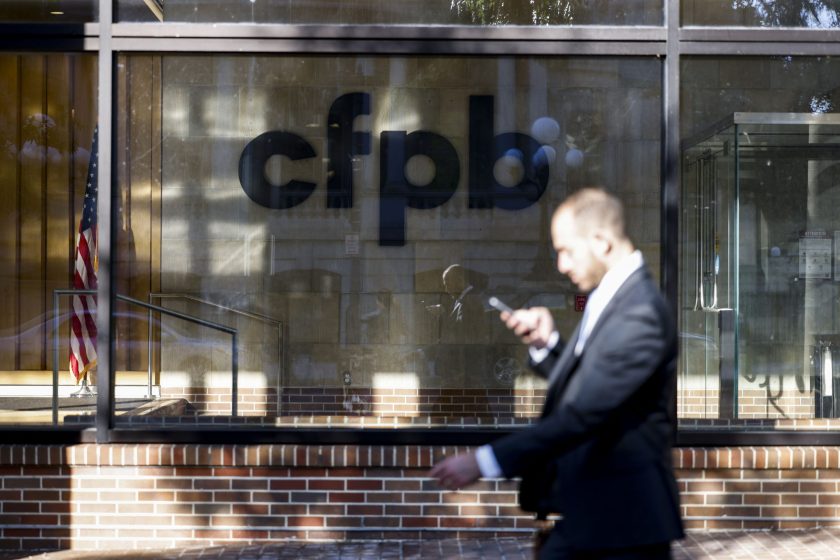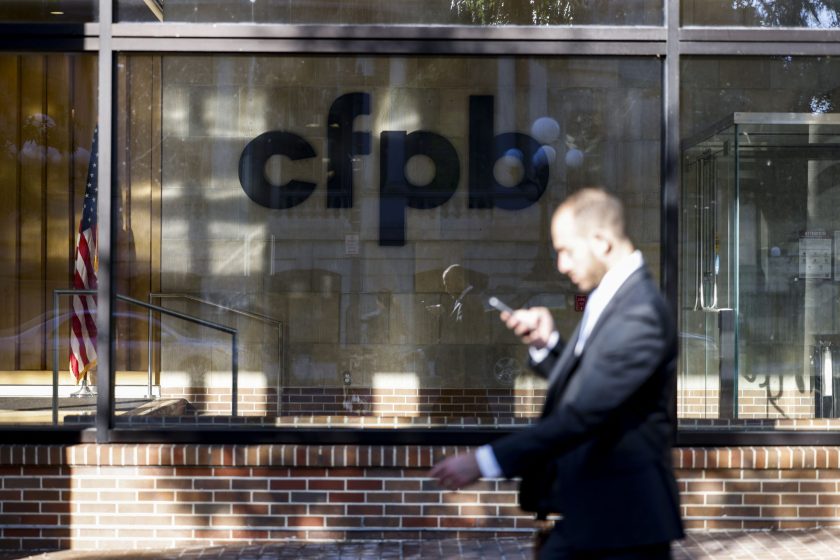
The U.S. Consumer Financial Protection Bureau (CFPB) was created by Congress in the aftermath of the Great Financial Crisis to regulate mortgages and other consumer financial products. Ting Sheng – Bloomberg – Getty Images
“We have the best economy in the world,” President Joe Biden declared in his State of the Union address. But despite some positive economic trends in recent months, the economic challenges facing millions of American families are real, and they are still paying more for everyday necessities. Because they pay their bills, face financial uncertainty, and borrow money to make ends meet. A recent Federal Reserve survey of consumer expectations found that the average household's ability to come up with $2,000 to cover an unexpected expense has fallen to its lowest level in a decade. Additionally, the Federal Reserve just revealed that consumer credit increased more than expected to $19.5 billion in January. This was a seasonally adjusted annual rate of 4.7%, faster than the previous month's 0.4%.
Consumers rely on credit for a variety of purposes, including financing the purchase of a home or car, large expenses like a refrigerator, unexpected repairs, and even a little financial flexibility. Access to some form of responsible and affordable credit, even for millions of American households with no established credit, less-than-perfect credit, or even no savings or bank accounts. is still needed. This is an important financial tool, and policymakers must look for ways to ensure that people have access to all forms of credit of their choice or for which they are eligible. However, the Consumer Financial Protection Bureau (CFPB) does the opposite.
For more than a century, my trade association's members have provided consumers with many forms of credit, from installment loans and mortgages to credit cards and auto loans.
Currently, financial services industry policy and oversight at the CFPB is confusing, contradictory, and complex. The agency was created in 2010 under the Dodd-Frank Act and, in addition to protecting consumers from bad actors, is tasked with ensuring a well-functioning market for both borrowers and lenders. That's not happening. And it threatens access to credit for tens of millions of Americans and small businesses who need it more urgently than ever.
frivolous rule making
The problem is that the CFPB doesn't have clear rules for the industry. Instead of using established formal rulemaking processes, agencies rely on blog posts, press releases, vague guidance, opinions, and enforcement actions to frame common practice as the basis for legal action. establish policies and often claim they offer legal action. Risks to Consumers. The CFPB also goes beyond Congress's direction to allow financial services companies to solicit personal information such as a customer's sexual orientation and share that data with the government, even if it is unrelated to the business credit being sought. It was compulsory to do so.
Rulemaking is not a courtesy or a suggestion; it is required under the Federal Administrative Procedure Act. The agency develops regulations using a process that includes opportunities for notice and comment, questions, review of the underlying data, potential conflicts with other laws, and potential impacts to consumers and businesses. If not taken care of, it creates debilitating challenges.
Even if the CFPB were to attempt rulemaking, the results would be contradictory and confusing. The agency, meanwhile, proposed prohibiting lenders from considering medical debt when conducting standard ability-to-repay analyses. Meanwhile, authorities imposed penalties on auto lenders that failed to account for expenses such as medical bills in borrowers' debts.
why is it important
All financial institutions, from banks to auto finance companies to installment lenders, rely on clarity and certainty to serve consumers. Risk analysis must factor in unclear regulations and policies that may subject companies providing credit to regulatory scrutiny or investigations.
The current uncertainty in the economic and regulatory environment is making access to credit challenging. According to a report from the Federal Reserve, banks and other financial institutions have seen a decline in consumer interest in installment loans (auto, student, personal) for six quarters since January 2024, and nearly half of households They report finding it more difficult to obtain loans than before.
The lack of transparency from a regulator that regularly demands transparency from the industry it oversees was enough to galvanize something highly unusual in Washington today: bipartisanship. In January, eight members of the House Financial Services Committee sent a letter to the CFPB expressing concern that the agency had not yet defined what “risk” meant in lending. For the CFPB to declare a company's business activities “risky” without first defining the risks is like a highway patrolman stopping a car for speeding without going the speed limit.
Our industry shares the CFPB's goal of making consumer credit markets work for consumers, responsible providers, and the economy as a whole. However, this goal can only be achieved if the rules are easily understood and the circumstances justify it.
For decades, our members have operated under a simple set of commitments: Consumers have the right to choose loan products that provide benefits and meet their needs. . Loans must be affordable and avoid trapping borrowers in a cycle of debt. Loan documents should be easy to understand and include all costs and clear terms and conditions. And consumers need to be confident that their personal information and sensitive data is protected and respected by both financial institutions and regulators.
We believe these principles are a good foundation for the CFPB to establish clear rules of the road when necessary. At the end of the day, consumers want to do business with a financial services company that treats them fairly and offers transparent and clear terms. Shouldn’t companies expect the same from the policymakers and regulators who oversee them?
Bill Himpler is President and CEO of the Financial Services Association, the national trade association representing the consumer credit industry.
More must-read commentary published by luck:
The opinions expressed in Fortune.com commentary articles are solely those of the author and do not necessarily reflect the author's opinions or beliefs. luck.


